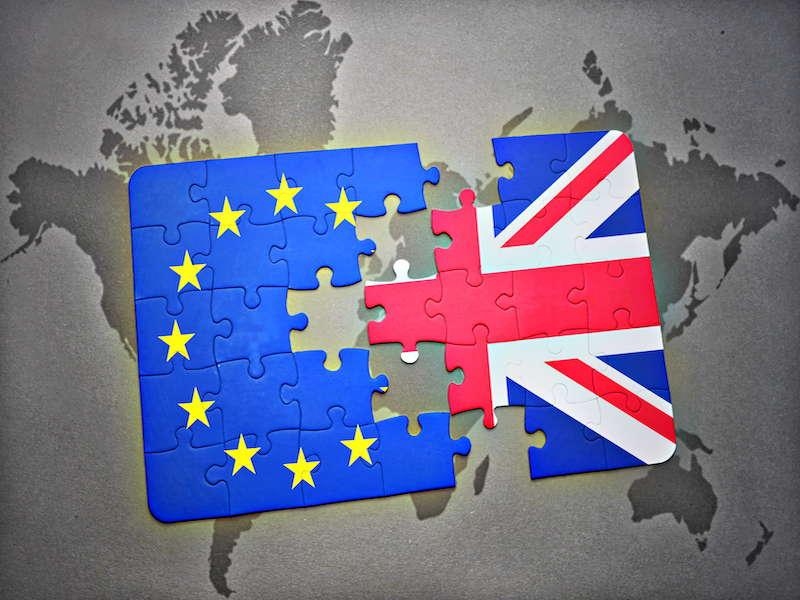Economy
The U.K.’s Largest Concern After Brexit

After the Brexit vote had taken place, Britain began to feel the weight of an account deficit.
This account deficit has become a cause of worry for the nation.
The truth of the matter is; it is never a good idea to depend on strangers to loan you money so you can see your way through the bad times.
Investors are quickly learning about how important understanding this risk is for them.
Because comprehending this risk is so important, it is shocking that only some investors understand them dynamics surrounding the United Kingdom’s account deficit.
Current account deficits traditionally occur when an economy already overly indebted begins to engage in excessive importing.
The United Kingdom has done this.
The following chart shows how its 3% GDP in 2011, expanded to 7%.
The United Kingdom’s role in acting as a home for those who own assets overseas and global companies is primarily responsible for this leap.

The Weaker the Pound…
The increase in the account deficit as it stands currently, will partially be undone by the weaker pound.
However, there may not be as many benefits as originally hoped for the weaker pound.
The United Kingdom is still susceptible to experiencing foreign capital flight. This could take place if:
- Public borrowing takes place and becomes uncontrollable
- If the assets for the United Kingdom lose attractiveness due to the economy issues, they are experiencing.
[ms_divider style=”normal” align=”left” width=”100%” margin_top=”30″ margin_bottom=”30″ border_size=”5″ border_color=”#f2f2f2″ icon=”” class=”” id=””][/ms_divider]
[ms_featurebox style=”4″ title_font_size=”18″ title_color=”#2b2b2b” icon_circle=”no” icon_size=”46″ title=”Recommended Link” icon=”” alignment=”left” icon_animation_type=”” icon_color=”” icon_background_color=”” icon_border_color=”” icon_border_width=”0″ flip_icon=”none” spinning_icon=”no” icon_image=”” icon_image_width=”0″ icon_image_height=”” link_url=”https://offers.thecapitalist.com/p/warrenbuffet/index” link_target=”_blank” link_text=”Click Here To Find Out What It Said…” link_color=”#4885bf” content_color=”” content_box_background_color=”” class=”” id=””]Warren Buffett Just Told His Heirs What He Wants them To Do With His Fortune When He Dies. [/ms_featurebox]
[ms_divider style=”normal” align=”left” width=”100%” margin_top=”30″ margin_bottom=”30″ border_size=”5″ border_color=”#f2f2f2″ icon=”” class=”” id=””][/ms_divider]
If you want to understand the current account deficit, look at a company like BP or BHP Billiton.
Most individuals are already aware that BP is an oil company.
BHP is a mining company.
These companies can make their money by extracting resources from different areas of the world and selling them.
The profits that are made by these enterprises are fed back into the United Kingdom and benefit the overall current account for the nation.
The falling of commodity prices that has taken place over the past view years means that these companies are earning less for their resources.
This directly results in less money coming back to the economy in the United Kingdom.
The following chart showed some of the biggest and lowest commodities last month:

Since the Brexit vote happened in June, BP and BPH have noticed their shares have become a lot higher.
This is directly related to the pound falling.
The money that they earn elsewhere can help fill some of the gaps because what they make overseas is now worth more.
United Kingdom residents that own assets in other countries are now more valuable when it converts to pounds than these same goods did before the vote took place.
This means that these assets are bringing in more money for the nation.
The Effects
Mark Carney is the Bank of England’s governor.
He stated the weaker pound’s effect on the investment positions of the United Kingdom should decrease the current deficient by around one third.
He also said this week that it would cut the deficit this much, only if the balance of trade were also improved by exports that are higher and imports that are lower.
This would result in the current account deficit seeing a significant improvement.
The United Kingdom would not have to act much for this to occur.
If the pound remains weak, however, the deficit could further decrease.
The deficit could further decrease specifically in December when the numbers for the third-quarter are reported.
However, if commodity prices can come back over the summer, it could have a sizable impact.
It would also help companies like BP and BHP.
This is not set in stone.
There may not be an improvement to speak of for the trade balance if:
- The majority of United Kingdom imports and exports are not sensitive to price
- This could result in the volumes remaining virtually unchanged.
The New United Kingdom Government
The new government over in the United Kingdom is already looking less conservative on an economic level than the one before it.
The new administration officials have even been discussing increasing the amount of government borrowing.
This type of spending may be a good move for the economy on a domestic level.
However, it may not be all that is needed.
Increasing borrowing risks testing international investors’ and lenders’ amount of nerve and level of commitment.
If you think you should be worried about the current deficit in the United Kingdom, you may be right.
The current account deficit in the United Kingdom and the concerns that surround it should not be overlooked.
In fact, they should be understood and taken seriously.



